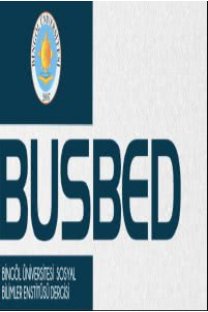MICHEL FOUCAULT’DA EPİSTEME VE SÜREKSİZLİK KAVRAMLARININ İNCELENMESİ
Bu çalışmada Foucault terminolojisinde önemli bir yere sahip olan “episteme” ve “süreksizlik” kavramları Foucault’nun felsefesi çerçevesinde işlenmiştir. Bu doğrultuda episteme kavramının ele alınması; Foucault’nun tarihsel dönemlere ilişkin yaptığı arkeolojik çözümlemeler çerçevesinde her dönemin neden birbirinden farklı bilgi temeline sahip olduğunu anlamamıza önayak olacaktır. Buna ek olarak süreksizlik kavramından yola çıkarak da Foucault’nun tarihi neden Rönesans dönemi, klasik dönem ve modern dönem olmak üzere üçe ayırma gereksinimi gördüğüne ilişkin görüşleri ve gerekçeleri incelenecektir. Bu bağlamda görüldüğü üzere, Foucault’nun ortaya koyduğu düşünce bakımından episteme ve süreksizlik kavramları birbirinden ayrıştırılmak suretiyle incelenip anlaşılabilecek kavramlar olmaktan ziyade, anlaşılması bakımından bir arada ele alınması gerekmekte olan yapıdadırlar. Sonuç olarak bu çalışmanın amacı, Foucault’nun süreklilik içeren tarih anlayışının tam karşısına koyduğu süreksizlik içeren tarih anlayışını benimsemesinin gerekçelerini ortaya koymak, adı geçen süreksizliğin meydana gelişinin temelinde bulunan episteme kavramının Foucault’da ne anlama geldiğini ele almak ve epistemik kırılmalar ile süreksizlik arasındaki ilişkiyi Foucault çerçevesinde incelemektir
ANALYSING THE CONCEPTS OF EPISTEME AND DISCONTINUITY IN MICHEL FOUCAULT
In this work, concepts of “episteme” and “discontinuity”, which have an important place in the terminology of Foucault, were studied in the framework of Foucault’s philosophy. With the consideration of the concept of episteme in this direction; Foucault’s insights into why archaeological settlements of historical periods have different knowledge bases in each era will provide insight. In addition to this, from the concept of discontinuity, the views and reasons why Foucault sees the necessity of separating the history, such as the Renaissance Period, the Classical Period and the Modern Period, will be examined. As seen in this context, the concept of episteme and discontinuity in terms of the idea that Foucault puts forth is a structure which needs to be considered together in terms of understanding rather than concepts which can be examined and understood by separating them from each other. In conclusion, the aim of this work is to put forward the reasons why Foucault adopts the concept of discontinuity history that he puts against the continuity of history; to discuss what the episteme concept underlying the development of the discontinuity means to Foucault, and the relation between epistemic breaks and discontinuity, in the frame of Foucault.
___
- FOUCAULT, Michel (2011) Bilginin Arkeolojisi, Çev. Veli Urhan, İstanbul, Ayrıntı Yayınları.
- FOUCAULT, Michel (2015) Kelimeler ve Şeyler, Çev. Mehmet Ali Kılıçbay. Ankara, İmge
Kitabevi.
- URHAN, Veli (2010) Foucault, İstanbul, Say Yayınları.
- URHAN, Veli (2013) Michel Foucault ve Düşünce Sistemleri Tarihi, İstanbul, Say Yayınları.
